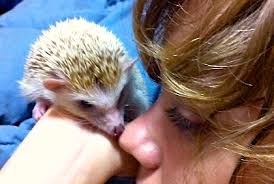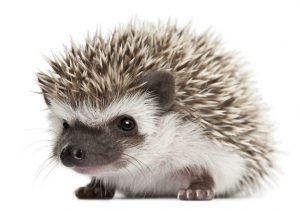Every time someone introduces a new pet at the kid’s school, I see a Salmonella factory (summer holidays are over, grade 5 started today for Sorenne).
 This isn’t the first time the prickly pest or pet, depending on perspective, like possums, has been linked to Salmonella Typhimurium: From December 2011 to April 2013, 26 people were infected with Salmonella typhimurium. One person died and eight people were hospitalized in that outbreak, the C.D.C. reported.
This isn’t the first time the prickly pest or pet, depending on perspective, like possums, has been linked to Salmonella Typhimurium: From December 2011 to April 2013, 26 people were infected with Salmonella typhimurium. One person died and eight people were hospitalized in that outbreak, the C.D.C. reported.
According to the U.S. Centers for Disease Control, 11 people infected with the outbreak strain of Salmonella Typhimurium have been reported from eight states.
One person has been hospitalized and no deaths have been reported.
Epidemiologic and laboratory evidence indicate that contact with pet hedgehogs is the likely source of this outbreak.
In interviews, 10 (91%) of 11 ill people reported contact with a hedgehog.
Illnesses started on dates from October 22, 2018 to December 25, 2018. Ill people range in age from 2 to 28 years, with a median age of 12. Forty-five percent are female.
The outbreak strain making people sick was identified in samples collected from three hedgehogs in two ill patients’ homes in Minnesota.
 Hedgehogs can carry Salmonella germs in their droppings while appearing healthy and clean.
Hedgehogs can carry Salmonella germs in their droppings while appearing healthy and clean.
These germs can easily spread to their bodies, habitats, toys, bedding, and anything in the area where they live. People become sick after they touch hedgehogs or anything in their habitats.
Wash your hands
Always wash hands thoroughly with soap and water right after touching, feeding, or caring for a hedgehog or cleaning its habitat. Adults should supervise handwashing for young children.
Play safely
Don’t kiss or snuggle hedgehogs, because this can spread Salmonella germs to your face and mouth and make you sick.
Don’t let hedgehogs roam freely in areas where food is prepared or stored, such as kitchens.
Clean habitats, toys, and supplies outside the house when possible. Avoid cleaning these items in the kitchen or any other location where food is prepared, served, or stored.
